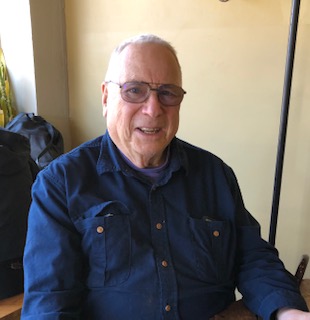Opinion: We Interrupt This Message….

Photo: istock
We Need To Prioritize The Coming Town Election

I have been writing for a while about amending Amherst’s Home Rule Charter in 2024 (see here, here and here), the first chance (under the terms of the Charter) we will have to do so and the last chance before 2034 that we will be able to do so. I have attempted to be methodical and to work my way through several areas in which I think the Charter is badly constructed. But then, something happened . . .
Next year became this year. We know that in 2024, our new “next year”, councilors will vote on amendments to the Charter, but we don’t know who those councilors will be. That is because in 2023, our new “this year”, voters will elect a new Town Council; all thirteen seats will be on the ballot. And that makes me break out in a cold sweat.
This will be the third council we have elected. The first council was firmly under the control of the same people who controlled the Charter Commission. That control was significantly challenged by the second council, which included new independent voices and returned several independent councilors. This second council was more responsive and less predictable; meetings were absurdly long, and councilors were expected to sit on committees which also had regular, long meetings. Signs of fatigue were evident throughout the first year of this second council, and as we enter the second year we can expect more fatigue, shortness of temper, and irrationality of argument.
This is the price for the concentration of power that the Charter confers on the Town Council, and that the council, in its inception, wanted.
…a better question is, how can we persuade independent candidates that it doesn’t have to be like that; if they run and are elected, they can create a Town Council that accommodates a variety of viewpoints, listens and responds to the residents of Amherst, reaches decisions expeditiously, and allows councilors to have a life outside of the Town Room.
Who would want to run for a seat on a council like that? But a better question is, how can we persuade independent candidates that it doesn’t have to be like that; if they run and are elected, they can create a Town Council that accommodates a variety of viewpoints, listens and responds to the residents of Amherst, reaches decisions expeditiously, and allows councilors to have a life outside of the Town Room.
And we can do all this without amending the Charter at all. For one of the lessons learned from watching the tragic comedy in the House of Representatives – and indeed all of American politics – is that the quality of our government is less dependent on written documents and more dependent on the character and qualities of our representatives and their appointees. I used to believe in the “government of laws, not men” argument but now I have come to believe that government is always reflective of the people who write the constitutions, enact the laws, run for office, and vote for their elected representatives. Amherst’s Home Rule Charter, like our U.S. Constitution, is a living document. It needs amending, for sure, but right now it needs interpreting even more. Here are some things a Town Council can do under our current Charter.
A town council less interested in control and more interested in representation can do without the four standing committees it has allocated among its members. The Town needs a Finance Committee but there is no reason for all of its voting members to be town councilors; indeed they should not be if its function is to be legitimate. And the bizarre notion of “non-voting members” can be eliminated. All Finance Committee members should vote and they should be independent of both Town Hall and Town Council.
The other three standing committees -Community Resources Committee (CRC), Governance, Organization & Legislation Committee (GOL) and Town Services and Outreach Committee (TSO) are not only not needed but they are impediments to efficient government. The Council should learn to trust the other agencies of governance that these committees were established to oversee. If, in the future, the council decides it needs committees of its own, they can be comprised of other town residents, not councilors. If it needs subcommittees of its own members, those committees should always be ad hoc and the conditions of their termination should be written in to their establishment.
The new council can review its Rules of Procedure to find ways of making meetings both shorter and more responsive to residents. By relaxing its need for control, it will discover that this is possible.
A thirteen-member council is both too large and too small. It is too large to be efficient and too small, in this age of PACs, to be representative. That means that currently, it is probably the right number. Voters can make it more representative, but only the council itself can make it more efficient. I want independent candidates for this important body to know that it is possible, and that wanting to do so is a good reason to run. You can create a council that both works and represents. But voters can only vote for candidates who choose to run.
Michael Greenebaum was Principal of Mark’s Meadow School from 1970 to 1991, and from 1974 taught Organization Studies in the Higher Education Center at the UMass School of Education. He served in Town Meeting from 1992, was on the first Charter Commission in 1993, and served on several town committees including the Town Commercial Relations Committee and the Long Range Planning Committee.
